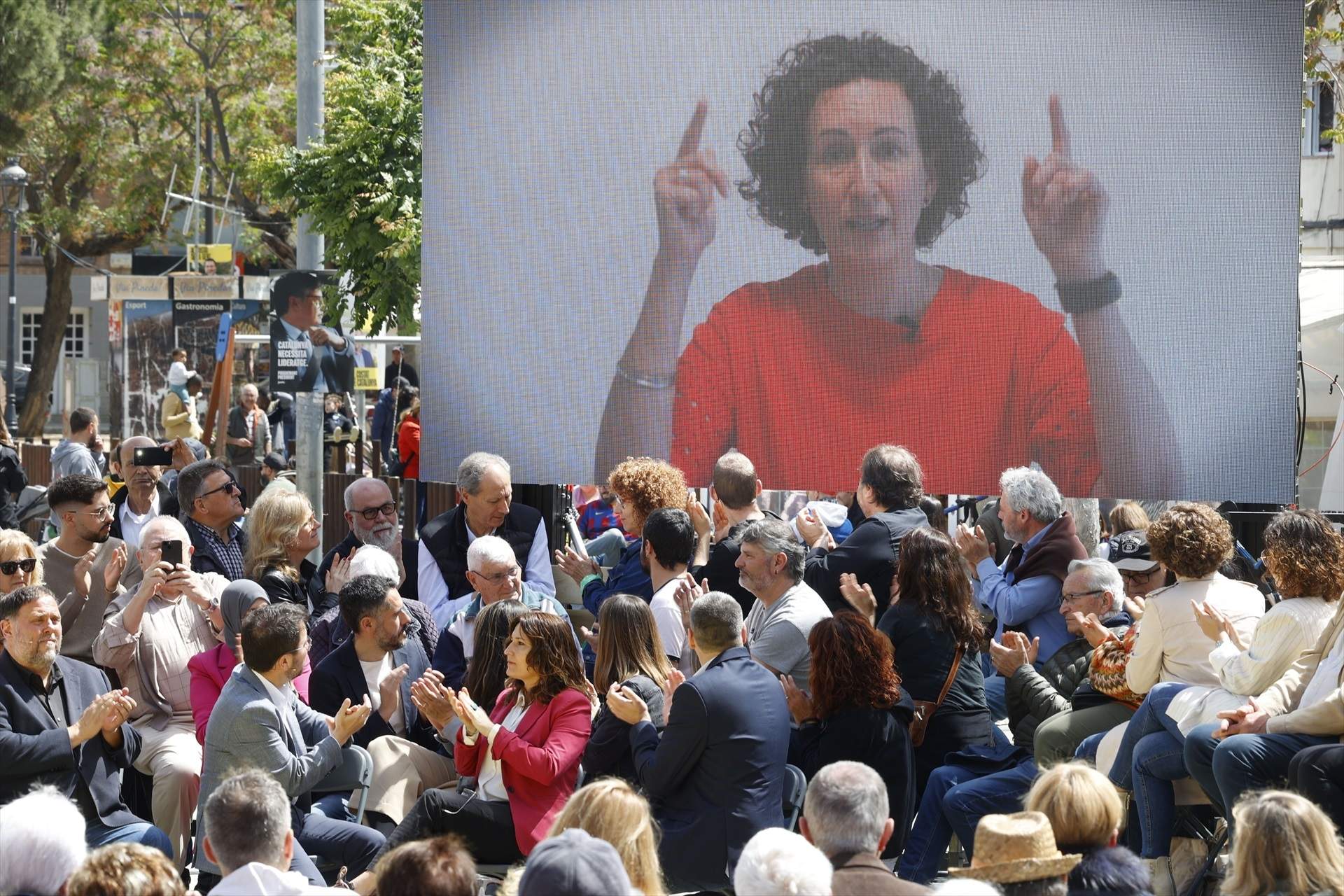The Spanish judge in charge of the Democratic Tsunami case, Manuel García-Castellón, has refused to allow exiled Catalan politician Marta Rovira to testify from Switzerland by video conference on May 22nd, and has asked her to do so by video conference from a court in Barcelona, the city where, according to the judge, she has her official home address. In a court document to which ElNacional.cat has had access, the National Audience judge argues that the videoconference statement is used "when it can be implemented easily", which applied within Spanish territory, since a dedicated system is used for this procedure. In the case of a video conference from Switzerland, García-Castellón asserts that a written statement would have to be issued, which would "delay the actions in an unwanted and unnecessary way", and for this reason he rules it out. On the other hand, the judge suspended sine die the testimony by the director of president Carles Puigdemont's Office, Josep Lluís Alay, scheduled for May 22nd, following a request from his lawyer, Gonzalo Boye, who has a trial to attend that day, as well as due to the state of health of Alay, who is recovering from a brain aneurysm.
In the case of the others investigated by this court for alleged crimes of terrorism in the case centred on a pro-independence protest platform, the court summons is also still valid. These are the businessman Oriol Soler; the former Catalan government minister Xavier Vendrell (ERC); the secretary of ERC's Moviments Socials group, Marta Molina; La Directa journalist Jesús Rodríguez; computer scientist Jaume Cabani; Òmnium Cultural board member Oleguer Serra, and activist and writer Josep Campmajó. Of these, only Soler, Molina and Vendrell are in Catalonia, as the rest are in exile. The only one who has confirmed attendance at the court to make the statement is Molina, who is defended by the lawyer Marina Roig.
Serra and Campmajó, defended by lawyer Benet Salellas, have requested that they be summoned to testify through an international channel, given that their current addresses are in Switzerland. "The mechanisms of international jurisdictional cooperation with the Swiss authorities need to be used in order to process the appropriate judicial summons", they state in a letter. They assure that they have no problem providing their address as long as a separate section of the case is opened and extreme right-wing organizations and police officers are excluded from involvement in that section, in order to guarantee the confidentiality of the personal data of the senior Omnium figure. On the other hand, in the letter, the Serra's defence lawyer criticizes that, taking into account that the Tsunami case has been open for five years, they find themselves called to testify a few days before the passing of the amnesty law, which will end court cases related to the Catalan independence process. "It provides little appearance of objective impartiality and judicial independence," they note.

